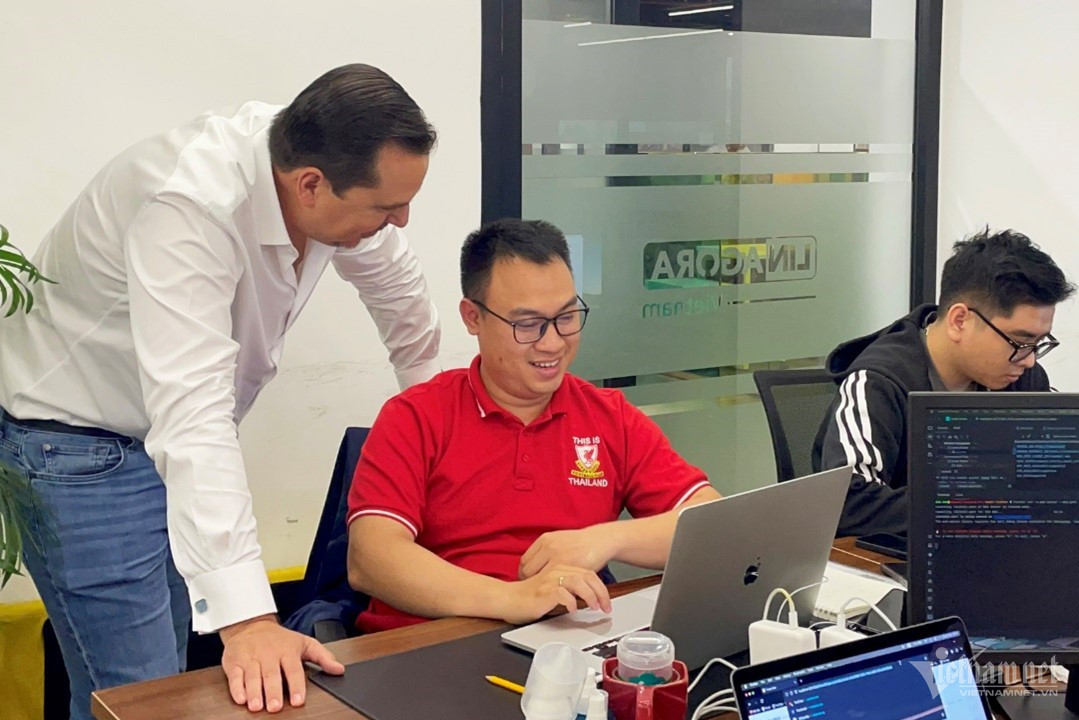
Alexandre Zapolsky, 47, an expert on open source software and a member of the French National Digital Committee, is president of Linagora, the firm he set up when he was a university student.
Throughout his career, Zapolsky has been pursuing a ‘third digital way’, an alternative for US digital giants – GAFAM (Google (Alphabet), Apple, Facebook (Meta), Amazon, and Microsoft) and BATX (Baidu, Alibaba, Tencent, and Xiaomi).
In VietNamNet’s interview, he said digital sovereignty is the ability to control technological dependence on suppliers. A country cannot have digital rights if they do not master open source technology. Open source code helps stay independent of any software provider.
This is especially true in AI. Without an open large language model (openLLM), one will be dependent on an exclusive LLM system. Most of these platform systems come from the US or China.
Proprietary language models use unpublished data sets. Developers train the AI using data sets in their own way. The lack of capability of controlling input and output data will pose risks for users.
Closed AI may give wrong answers affecting culture and geopolitical interests of a nation. For example, how would AI respond if it is asked about a territorial dispute? Zapolsky said that one country must not depend on the views of other countries.
There should be more AI models, not just one, such as the US’s Open AI and China’s Baidu AI. There should be so-called ‘biodiversity’ in the digital environment, with the appearance of many AI models. This is what open source LLM can bring to the world.
What has happened with Russia can show the possible serious impact from heavy reliance on foreign AI models.
With pressure from sanctions, MongoDB, a data solution firm, blocked all access from companies and agencies related to Russia. Just within one day, the institutions lost the right to access their data on the platform.
More seriously, just a short time later, MongoDB decided to abrogate all the data. As a result, the exclusive software provider’s clients in Russia lost the right to restore data from the service they relied on.
The typical example shows the importance of digital sovereignty, especially important services such as data. If a country relies on closed international trade solution or software providers, it may lose the right to access the IT systems of their own one day.
To avoid the fatal risk, countries need to develop their core digital infrastructure based on open source platform. This has been built in France and Europe under an initiative called Digital Public Infrastructure.
However, the question is why open source code, which has so many advantages, remains unpopular.
According to Zapolsky, the open source’s challenge is the dominant power from GAFAM, which has a higher capitalization value than France's total national budget.
Big Tech have power in financial capability and business leverage from huge budgets for ads, marketing and policy lobbying.
They create barriers in the technology market, thus affecting the competitiveness of open source. Meanwhile, organizing media campaigns and persuading users to use open source solutions will require considerable budgets and resources.
However, despite the challenges, more people have realized that open source will bring benefits to the planet, individuals and society. The popularity of open source is increasing, especially among youth.
Zapolsky, in the talk with VietNamNet, repeatedly affirmed that each country needs to build its capability to control its infrastructure to avoid reliance on any other country.
He noted that some companies in Vietnam have succeeded in building digital sovereignty. They use open technologies with support of some foreign experts and institutions, but they stay independent in technological infrastructre.
The pillars of digital infrastructure, including operating system, management system, folder and data, need to be built on the basis of open source. He believes that the government of Vietnam should fund the research and develop software produced in Vietnam.
Make in Vietnam, the program initiated by the Ministry of Information and Communication, is a good program honoring domestically made products. However, to develop open source technologies more strongly, Vietnam needs a stronger financial mechanism to support open technology-production companies.
Trong Dat